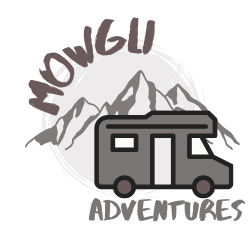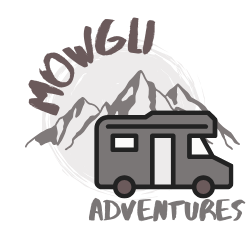Get the lowdown on RV sizes and choose wisely for your travels. Our detailed guide takes you through all you need to know.
RVing can be a lot of fun, but it’s essential to choose the right size RV for your needs.
If you choose something too small, you might not have enough room, and if you choose an RV too large, you might end up paying more in gas and fees for RV parks than you wanted to.
It can be hard to know which size RV is suitable for your family. You don’t want to end up cramped or uncomfortable on your trip, but you also don’t want to spend more than necessary.
So, how do you pick the perfect RV size for your needs?
Well, it’s not as simple as just picking a motorhome you like the look of or going off of what someone else tells you.
Instead, you need to consider all the different factors that might influence your decision.
This guide will help you choose the perfect size RV for your needs.
We’ll walk you through the different types of RVs available and help you figure out how much space you need based on the number of people in your family and your travel style.
Whether you’re looking for a spacious and luxurious RV or something more compact and easy-to-handle, we’ve got you covered. We’ll help you find the perfect fit for your needs and budget.
RV Sizes & What Type of RV do you Want?
There are many different types of RVs to choose from, so it’s important to know what type of RV is right for you. Here is a breakdown of the most common types of RVs:
Class A Motorhome
These are the largest and most luxurious RVs on the market. They can be up to 45 feet long and sleep up to 6 -10 people.
If you’re looking for a lot of space and luxury, a Class A motorhome is the way to go.
Class B Motorhome
Class B motorhomes are smaller and more compact than Class A RVs. As a result, they’re ideal for couples or small families and can sleep up to 4 people.
These RVs are typically around 25 feet long and are perfect for weekend trips or shorter road trips.
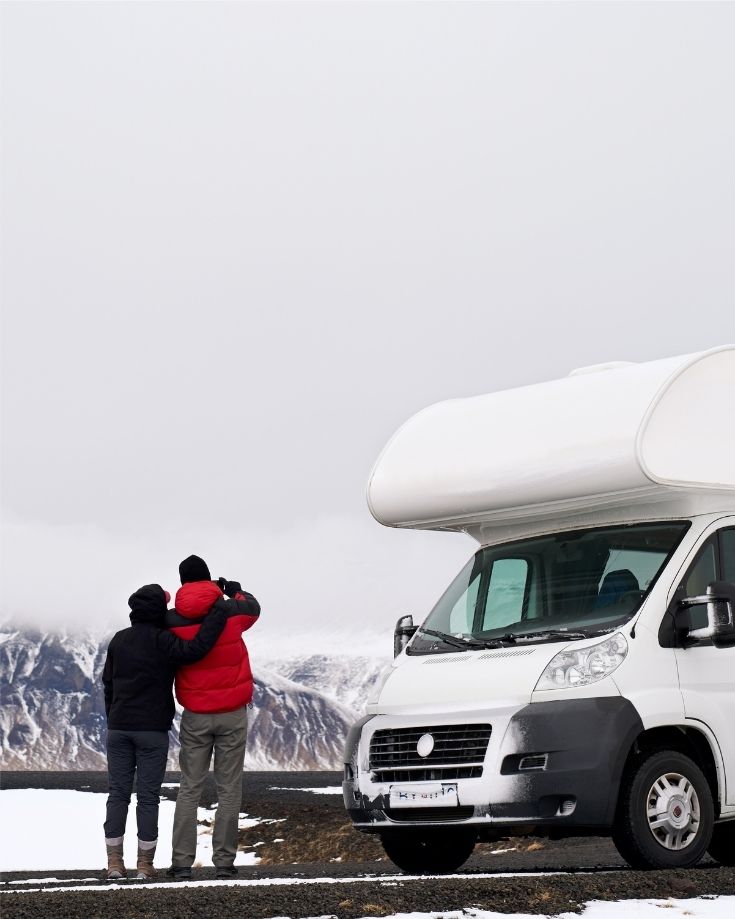
Class C Motorhome
Class C motorhomes are a good option for larger families. They can sleep between 4 and 8 people and are around 20-35 feet long.
These RVs are a good mix of space and convenience, and they’re often less expensive than Class A motorhomes.
Fifth Wheel Trailer
Fifth wheel trailers are a popular option for families and people who enjoy the outdoors but looking for convenience to use their towing rig without hauling the trailer everywhere.
They can sleep anything from 4 – 10 people and are around 30 feet long.
Travel Trailer
Travel trailers are a good option for smaller families or couples. They can sleep up to 4 – 10 people and are around 10-30 feet long.
They’re easy to set up and take down, making them a good option for weekend trips or longer road trips.
Pop up Trailer
Pop up trailers are the perfect option for people who want the convenience of a recreational vehicle without all of the space.
They can sleep 2 – 8 people and are around 10-15 feet long. They’re also straightforward to set up and take down.
How Often Will You Use Your RV?
How often you plan on using your RV plays a vital role in choosing the best size motorhome.
If you’re only going to use your RV a few times a year, then you may not need one that’s as big as a house.
Likewise, packing for a short trip won’t require as much storage space as packing for a long trip.
On the other hand, if you plan on living in your RV full-time, or even just for six months at a time, then you’ll need something that can accommodate all of your needs.
For example, you might not consider a washing machine or TV an essential accessory for a weekend getaway, but for long-term RV living, they’re a great convenience.
Choosing the right RV size to meet all your needs is essential for a comfortable and enjoyable experience.
What Accessories & Comforts do You Want that You Cannot Live Without?
Giving this question due consideration will help you ascertain how much space you need.
For example:
- Do you need a fixed bed that you don’t have to make up daily, or is a rock‘n’roll bed acceptable? The former will take out an amount of living space, leaving less space for daytime activities.
- Is a washing machine or dishwasher essential items? They’re not usually compact and take up a lot of space. So a small Class B is unlikely to be an appropriate size.
- Are you a digital nomad working in your camper and need a dedicated office space? A fifth wheeler or Class A is probably right for you.
- Do you have hobbies that use large pieces of kit like cycling or surfing? You’ll need an RV big enough to provide the storage space for your kit.
How Many People Will Travel & Sleep in Your RV?
One of the most important factors in choosing the best RV size is how many people will travel and sleep in your RV.
If you have a large family or you like to travel with friends, you’ll need a larger RV that can accommodate everyone.
On the other hand, if you’re traveling solo or with a small group, a smaller RV might be more suitable.
You also need to think about what kind of sleeping arrangements you want. For example, do you want bunk beds or beds for each person?
Consider visitors. You may travel as a couple, so a smaller, Class B RV would be suitable most of the time.
But what happens when the children and grandchildren turn up for a weekend? You could accommodate them in tents, or you may prefer them to have their own beds inside.
Your situation and family are unique to your travel style, so it’s an essential factor to consider when choosing how big or small to go.
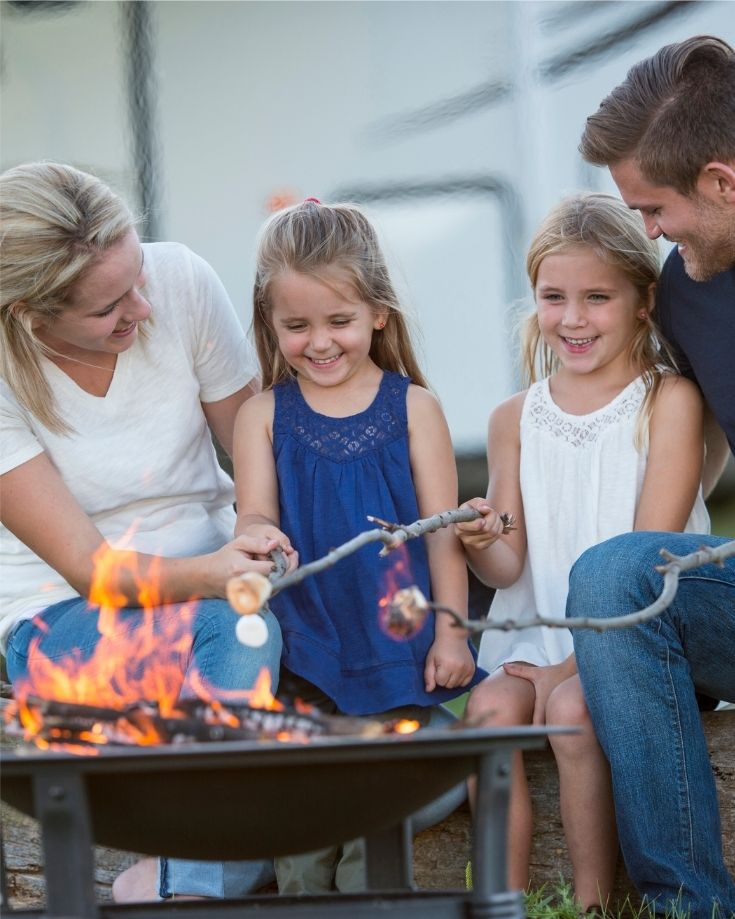
How Tall are You?
Some campers, especially Class B’s, have pretty low headroom. If you’re taller than 5ft, you’ll want to check you can stand up inside your RV without crouching.
For those planning occasional weekend getaways in fair weather, the lack of standing height may be no issue, but otherwise, think on.
Our Class B has a high roof, so there’s no real problem for anyone up to around 6ft.
That makes it comfortable for us to live year-round (we’re both relatively short). But if we were taller than 6ft, it wouldn’t be ideal.
Do You Travel with Pets?
Another important factor to consider is whether or not you travel with pets. If you do, you’ll need to make sure you have enough space for them (and you) to roam around and be comfortable.
If your pet likes to stretch out, you may want to dedicate a particular sleeping area of the RV for them.
You also need to factor in the space required for food and water bowls, litter boxes, bedding, and toys, plus all the other paraphernalia pets inevitably end up with.
When it comes to cats specifically, a larger RV will give them more room, especially if they’re not the kind of moggie to go on walks.
On the other hand, dog owners don’t have the same challenge as their pets use the outdoors more for exercise.
But a Class B motorhome might be the perfect size for a miniature Cavalier or Scotty dog, but an Alsatian (or 2) might be pushing its limits.
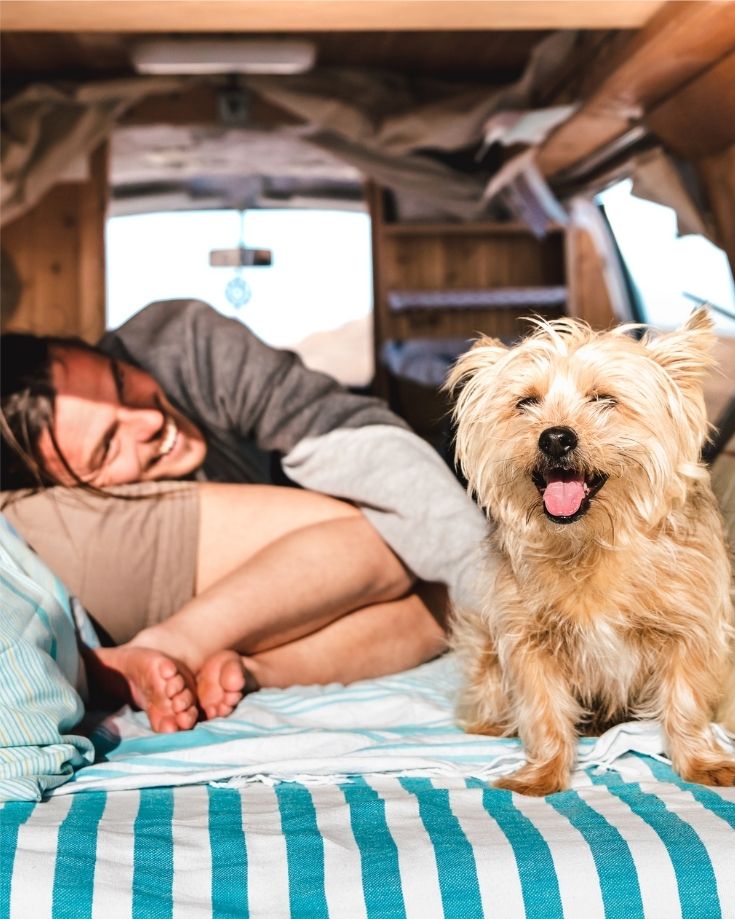
Consider RV Floor Plans
Floor plans vary by manufacturer, and each one offers its own unique set of benefits and drawbacks. For example, some floor plans are better-suited for extended trips, while others are more comfortable for short weekend getaways.
Choosing a layout that fits your lifestyle and travel needs is important. The exact same RV vehicle models and sizes usually have several layout options.
Some offer more storage space than others, which is crucial if you plan to do a lot of camping and hiking. Others have more living space, which can be great for families or groups.
The point is that while the overall size of the RV is important, pay attention to the layout and floor plan to maximize the space for your needs.
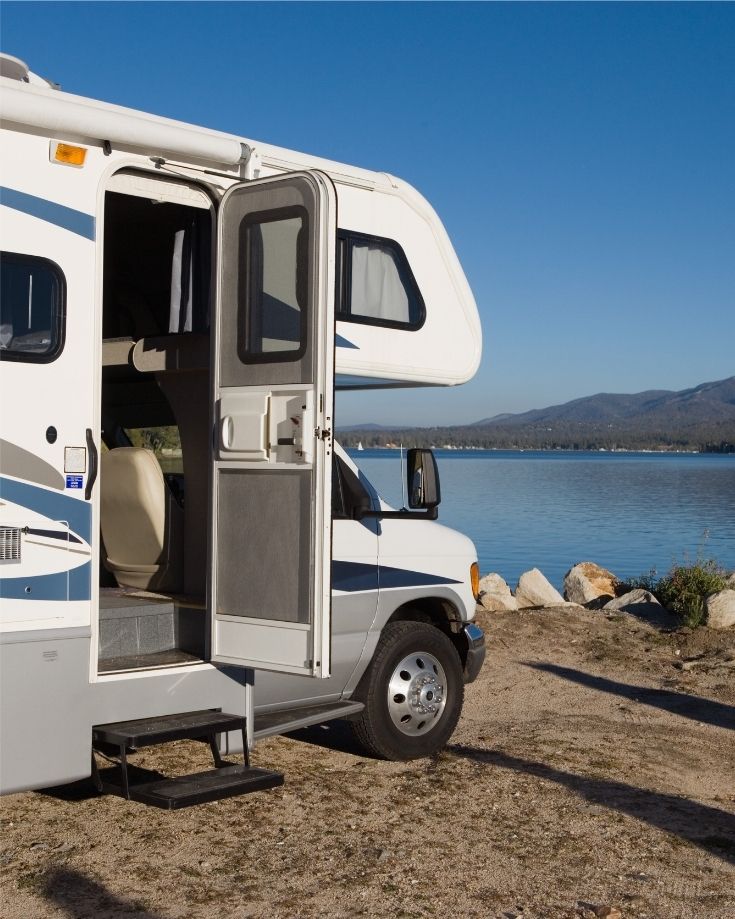
Where will You Camp?
The size of your camper has a bearing on where you can camp, so it’s crucial to consider where you think you want to camp.
For example, will you be near big cities and attractions? Or will you be in more remote areas? Will you use campgrounds or prefer boondocking or stealth camping?
Huge Class A motorhomes and fifth wheels aren’t ideal for stealth camping – they simply draw too much attention to themselves.
Any RV that looks like an RV isn’t ideal for stealth camping. Class B RVs are most likely your best choice if you’re trying to go unnoticed.
Do you plan on staying at National Park camprgounds? Unfortunately, they have limits on the RV lengths allowed to enter.
In general, anything up to 35 feet is ideal, but there are exceptions. For example, Banff National Park campgrounds limit RV length to 50 feet, while it’s 25 feet in Death Valley National Park.
State parks also have varied limitations on the RV length permitted to stay.
The upshot is that when you’re considering buying an RV, consider any limitations at the parks you’re most likely to visit most often and use that as a guide.
And if its a trailer you’re considering, don’t forget that the tow vehicle adds to the overall RV length too.
Do You Spend Time Inside or Beside Your Camper?
Your camping lifestyle can affect your choice of RV size, too. For example, if you spend more time outdoors, either exploring away from your rig or living beside it, you may not need a huge RV.
Fairweather camping may allow you to dine and work, if necessary, outdoors.
But, of course, that means you won’t spend so much time inside, so having plenty of space to feel comfortable may not be so important.
If you opt for a smaller RV, you can always use an add-on camper screen room to effectively extend your usable living space.
Alternatively, if you spend a lot of time indoors, a larger RV will provide a more pleasant space, especially for long-term living.
What’s Your Budget?
Your budget plays a crucial role in determining what size RV you can afford. Many factors determine the price of an RV other than simply its size.
That said, everything else being equal (age condition, brand, etc.), you can typically expect to pay more for a larger RV.
And when considering your budget, there’s more to consider than simply the upfront costs of the camper:
- Insurance
- Registration & documentation
- Taxes
- Campground fees
- Maintenance & fuel
In addition, if you’re hoping to reduce the cost of the RV by buying a travel trailer, make sure you account for the tow vehicle.
If you already have a tow vehicle, you may need an upgrade, depending on the size of the trailer.
And if you don’t already own one, you’ll need to budget for its purchase.
Before setting your heart on a specific size, make sure you’ve calculated your total affordability.
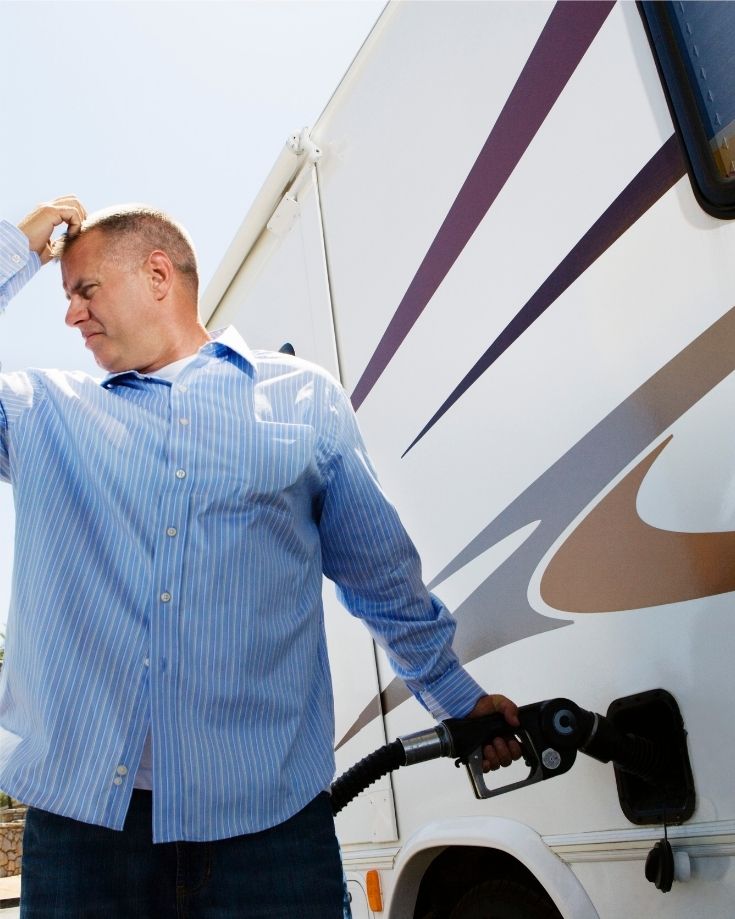
Consider Renting an RV Before You Buy
Renting an RV is a great way to test the waters and see if this lifestyle is for you.
It’s also much cheaper than buying one outright – which means that if it turns out you don’t like camping or traveling in your RV, then at least you didn’t spend too much money on it.
But once you’ve decided to buy an RV, renting allows you to try different types and sizes of RVs so that when you decide to purchase one, the chances are good that it will be the right fit for your needs and preferences.
The best part about renting an RV is that you can take your time deciding whether or not to buy one.
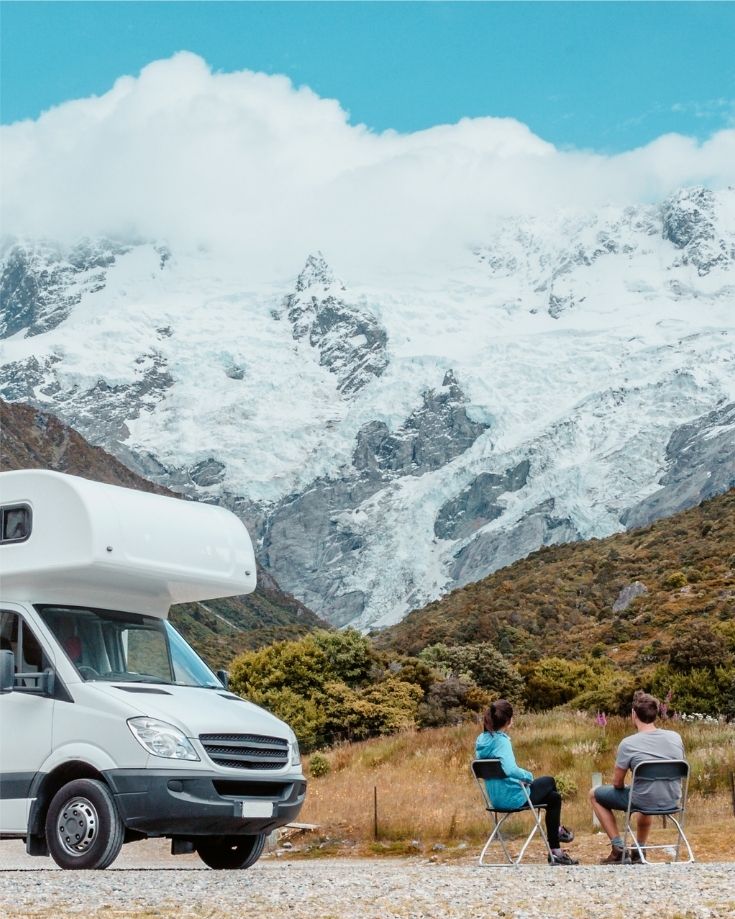
Advantages of Small RVs
Bigger isn’t always better, and small RVs have many advantages over their larger counterparts. Here are a few advantages a smaller RV has over a large one.
Note that these are generalizations, but there are many exceptions.
More Budget-Friendly
A small RV is typically much more affordable at purchase than a larger one.
Depending on the age and model, you can save tens of thousands of dollars by opting for a small RV.
For anyone storing an RV out of season, a smaller one demands lower storage costs too.
Less Fuel Consumption
A smaller RV will generally consume less fuel than a larger one, which is important to consider when traveling long distances.
This also means that your RV may have a smaller environmental impact.
This isn’t always the case and depends on make, model, age, and other factors, but it’s a fairly solid generalization.
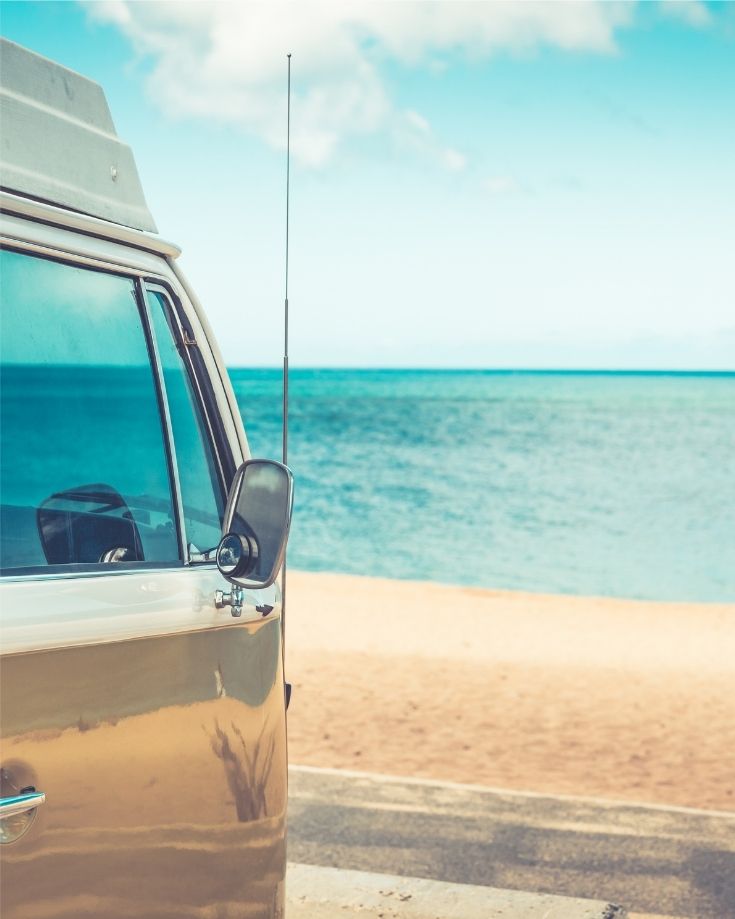
Take Up Less Space
Smaller RVs, by their nature, require significantly less space than large ones. This is great for people who don’t have a lot of storage space or want to keep their recreational vehicle close to home.
Most of us don’t have super long driveways, but many small RVs can fit neatly onto many home driveways.
Their shorter length also helps when parking, either at rest stops or store parking lots.
Easier to Drive & Maneuver
Smaller RVs are good for tight spots. They can get into campgrounds and parking lots without you having to back up or turn the RV around.
This is helpful when the spots are tight and you don’t have a lot of space to work with.
Less stress while on the road is another great benefit of opting for a smaller RV.
When you aren’t trying to maneuver your way through tight spaces, you have more time to relax and enjoy the journey.
Plus, you won’t have to worry so much about damaging your RV or running into something.
So, if you’re looking for an RV that’s easy to drive and maneuver, a smaller model is the perfect option. You’ll save yourself a lot of time and stress on the road.
Smaller Towing Vehicle
Trailers Smaller trailers don’t need such powerful towing vehicles.
If you’ve opted for a travel trailer, remember that smaller trailers don’t need such powerful towing vehicles.
Depending on what towing rig you already own, you may not need an upgrade with a smaller model.
More Campground Options
The smaller your RV, the more options you’ll have more camping. Because of the restrictions on RV length in national parks, larger RVs have limited options.
Boondocking is much easier in a smaller RV too. And if you have a low-profile Class B RV, you could even consider stealth camping.
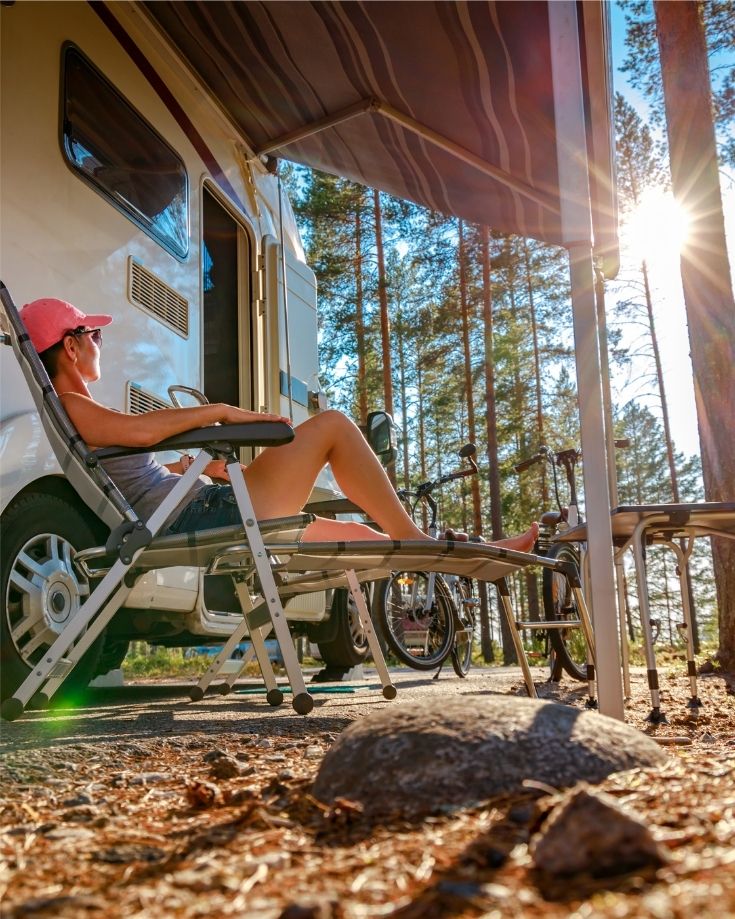
Easier to Setup & Decamp
Smaller RVs don’t take as much time to set up. For most models, you can pull into your camp spot, level up, and you’re done.
There are fewer, or no, slideouts to retract, and you may not need to (un)hook up sewage and water tanks.
That makes smaller RVs ideal for those frequently on the move.
If you had to go through the palaver of setting up and decamping a few times a week, or even more often, you’d soon get tired of it.
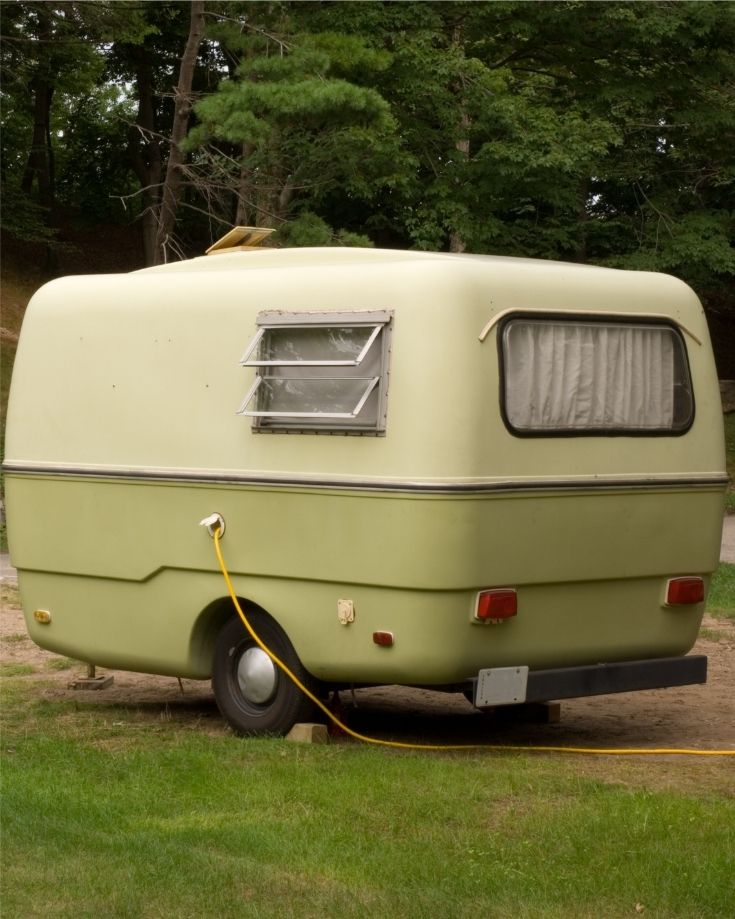
Benefits of Large RVs
And then sometimes, bigger is most certainly better. It’s only a shame we can’t have the best of both worlds!
Here are a few of the benefits of choosing a large motorhome or travel trailer for your RV travel adventures.
Larger Interior Space
A larger RV means a larger interior space. This can be great for families or groups who want to travel together.
You’ll have plenty of room to move around, and multiple slide-outs can expand the interior even further.
The largest RVs can be a home away from home, with all the creature comforts needed to live in it full-time should you wish.
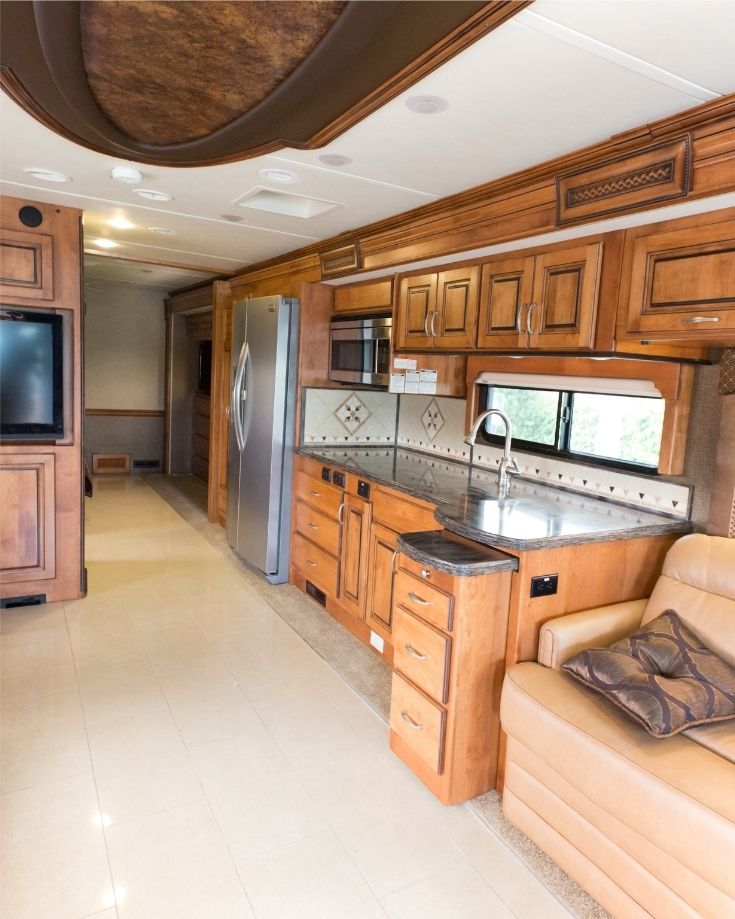
Ideal for Full-Time RVing
When it comes to full-time RVing, there are a lot of factors to consider when choosing the right rig for your needs.
But if you’re looking for an RV that can provide plenty of space and comfort, a large RV is often the ideal option.
One of the most significant benefits of a large RV is that it can easily accommodate a family or group of friends.
So whether you’re on a cross-country road trip or just taking a weekend getaway, there’s plenty of room to spread out and relax.
Plus, many large RVs come equipped with full-sized kitchens and bathrooms, making them the perfect home away from home.
The largest RVs may not be permitted to stay in National Park campgrounds, but a large RV is worth considering if you’re looking for plenty of space and comfort.
More, More, More of Everything
Just look at the amount of storage in a Class A motorhome.
That enormous underbelly can house massive holding tanks and provide fabulous storage for outdoor equipment like grills and outdoor furniture.
The interior space is vast, so you have no worries about finding space for luxury goods like a washer and dryer, large refrigerator, and coffee machines.
Then there are the sleeping arrangements. Not only can you find RVs capable of hosting a large family, but they also provide plenty of space.
Those bedrooms aren’t all cramped, or bunk beds, with many large RVs, offer spacious sleeping accommodation for everyone.
And large RVs usually have enough towing capacity so that you can haul around your daily runaround.
On the other hand, toy haulers are designed to carry small vehicles inside.
That negates some of the downsides of driving a large vehicle, albeit it also extends the total RV length while you’re traveling.
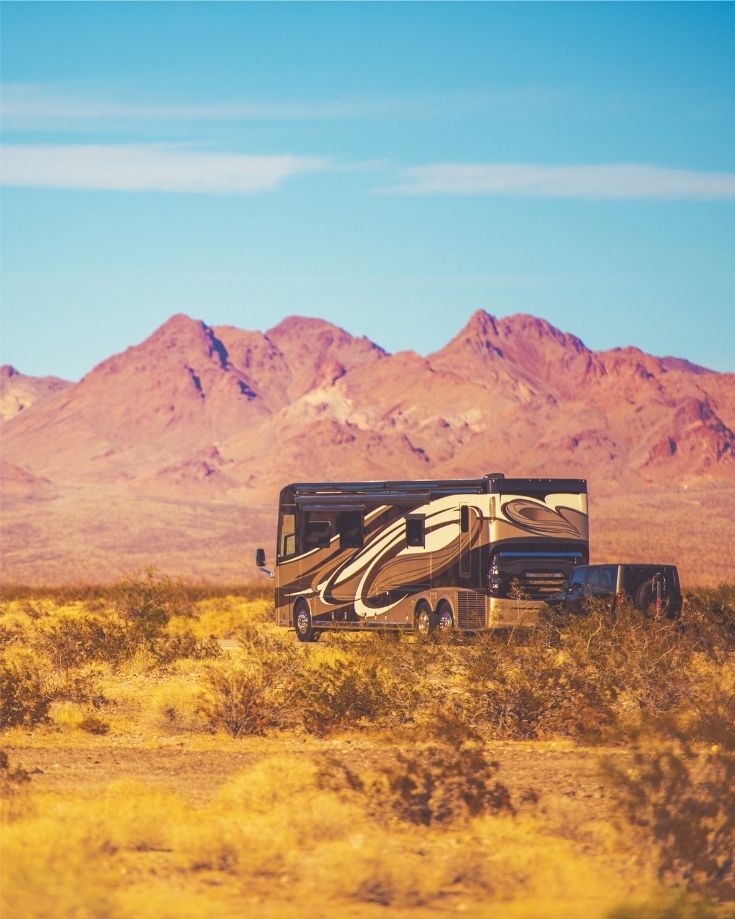
Wrapping It Up
When considering what size RV is best for you, it’s essential to consider various factors such as your budget, the type of camping you plan on doing, and how much time you spend inside or outside your camper.
Ultimately, the best RV size for you will depend on your individual needs and preferences.
All of the factors we’ve considered in this list are important when determining what size RV is best for you.
Whether you’re looking at how much space you need or what your budget can afford, it’s key to think about all of these things before making a purchase.
And if you’re still not sure what size RV is right for you, renting is always an option.
If you’re still unsure what size RV is right for you, renting is always an option. You can try out different sizes and types of RVs to see which is best for you.
Angela Devaney

Angela Devaney, a former IT project management professional, embarked on an adventurous journey of full-time travel, which included touring West Africa in a converted overland truck and converting an ex-military 4×4 Sprinter van into a camper for a five-year South American expedition. She now utilizes her hands-on experience to create practical RV living and van life advice as a full-time digital media producer, reaching over a million users annually through her YouTube channel, blog, and newsletter. Angela also lends her expertise as the editor-in-chief of the Campervan Electrics Handbook.
